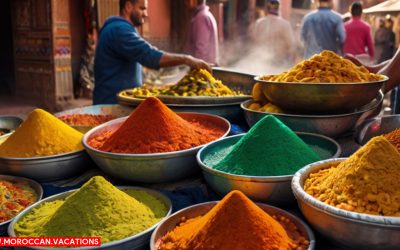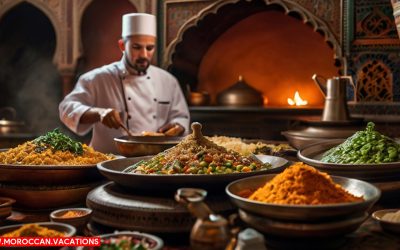Religious Festivals and Food
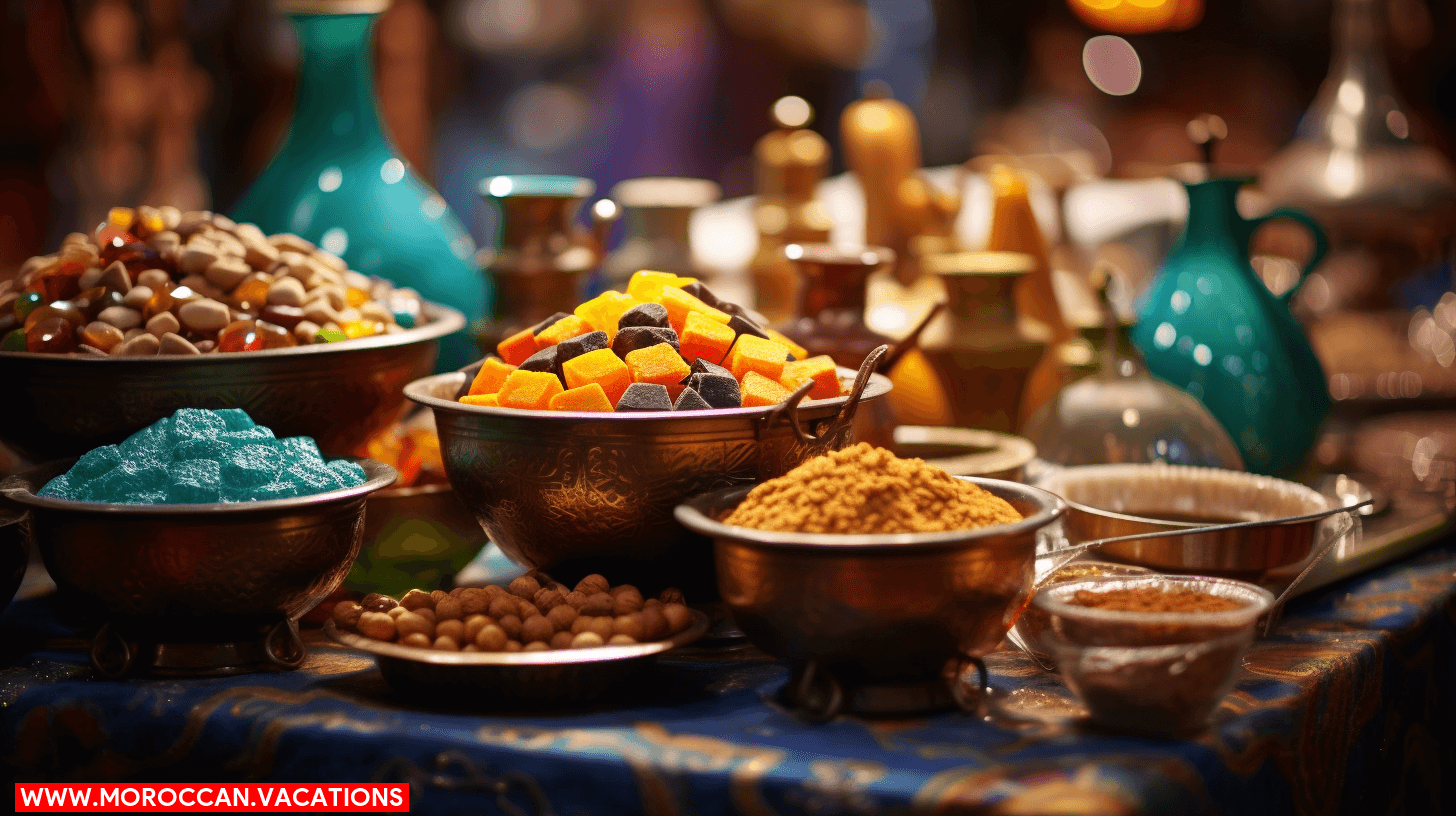

Imagine yourself in the vibrant streets of Morocco during a festive celebration. The air is filled with the enticing aroma of spices and sizzling meats. As you join the jubilant crowd, you can’t help but be captivated by the role of food in these joyous occasions. From religious festivals to cultural gatherings, the Moroccan people embrace their rich culinary traditions with open arms. In this article, we will explore the significance of food in Moroccan celebrations and festivals, and how it brings people together in a spirit of freedom and unity.
During religious festivals in Morocco, you will find that food plays a significant role in the celebrations. The country’s religious traditions have deeply influenced its culinary practices, making food an integral part of the cultural significance of these festivals.
One of the most important religious festivals in Morocco is Eid al-Adha, also known as the Festival of Sacrifice. This festival commemorates the willingness of Ibrahim (Abraham) to sacrifice his son as an act of obedience to God. As part of the celebrations, families gather to sacrifice an animal, usually a sheep or a goat, and share the meat with their community. This act symbolizes unity, generosity, and compassion.
Preparing and sharing food during religious festivals in Morocco is a way of connecting with one’s spirituality and strengthening familial and communal bonds. The process of cooking traditional dishes like couscous, tagine, and pastilla requires time, effort, and love. Families come together to prepare these elaborate meals, often using age-old recipes passed down through generations.
In addition to the religious significance, the food served during these festivals also reflects the rich cultural heritage of Morocco. The vibrant flavors, aromatic spices, and colorful presentations are a testament to the country’s diverse influences, including Arab, Berber, and French cuisines.
Traditional Moroccan Dishes
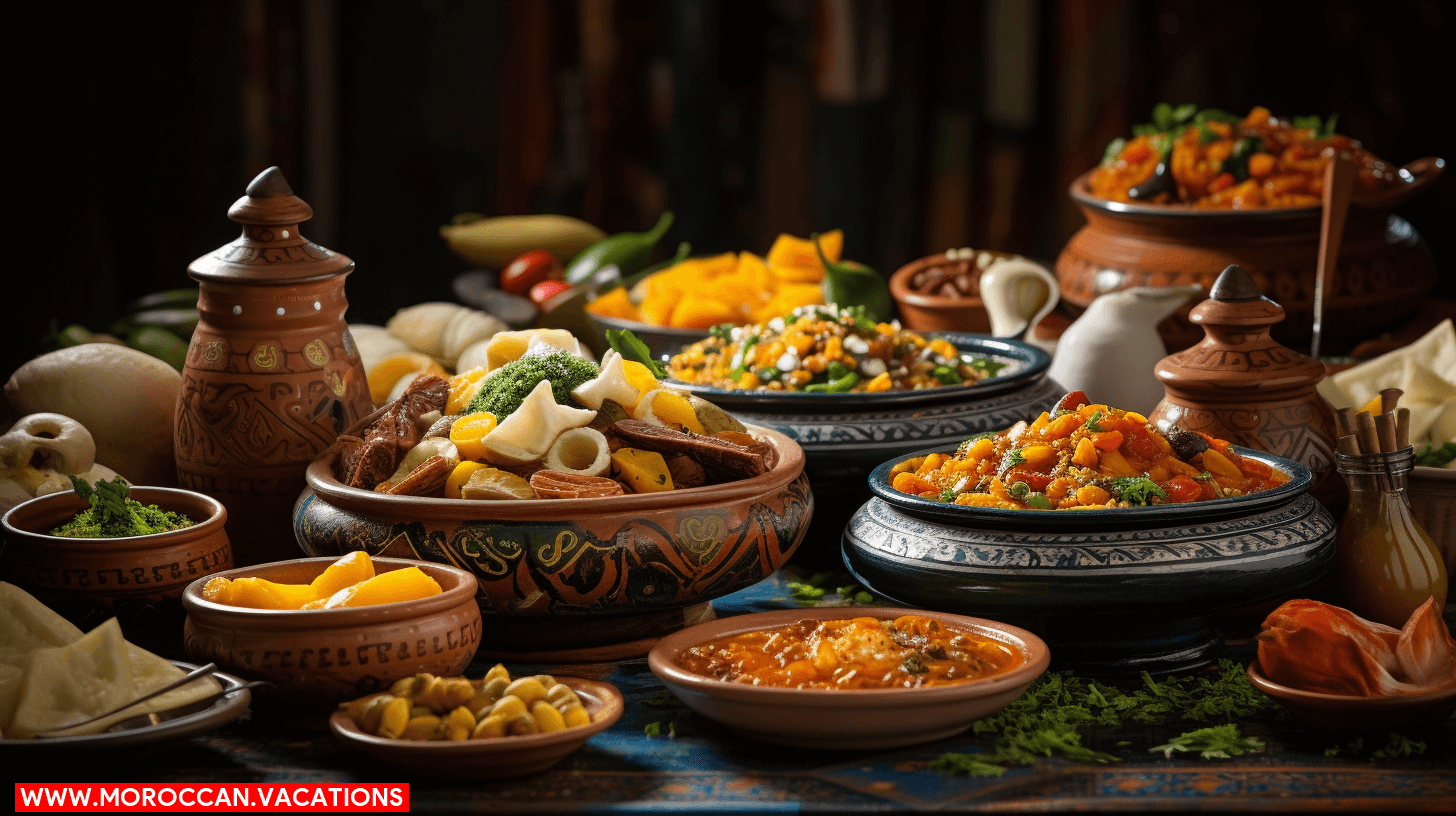

Indulging in mouthwatering Moroccan cuisine is an essential aspect of experiencing the country’s celebrations and festivals. The rich and diverse flavors of Moroccan dishes are a result of the country’s unique blend of Berber, Arabic, and Mediterranean influences. Here are some popular Moroccan dishes that you must try:
- Tagine: This iconic Moroccan dish is named after the earthenware pot in which it is cooked. Tagine is a slow-cooked stew made with a variety of ingredients, such as meat (usually lamb or chicken), vegetables, and aromatic spices like cumin, coriander, and saffron. The slow cooking process allows the flavors to meld together, resulting in a tender and flavorful dish.
- Couscous: Couscous is a staple in Moroccan cuisine and is often served as a main dish. It consists of small grains of semolina that are steamed to perfection and then served with meat, vegetables, and a flavorful broth. The combination of textures and flavors makes couscous a truly satisfying dish.
- Pastilla: Pastilla is a traditional Moroccan pastry that is both savory and sweet. It is typically made with layers of thin, flaky pastry filled with a mixture of meat (usually pigeon or chicken), almonds, and a blend of aromatic spices. The pastry is then dusted with powdered sugar and cinnamon, giving it a delightful contrast of flavors.
These are just a few examples of the incredible dishes that make up Moroccan cuisine. Each dish is a testament to the country’s culinary heritage and is sure to leave you craving for more.
Festive Food Customs and Traditions
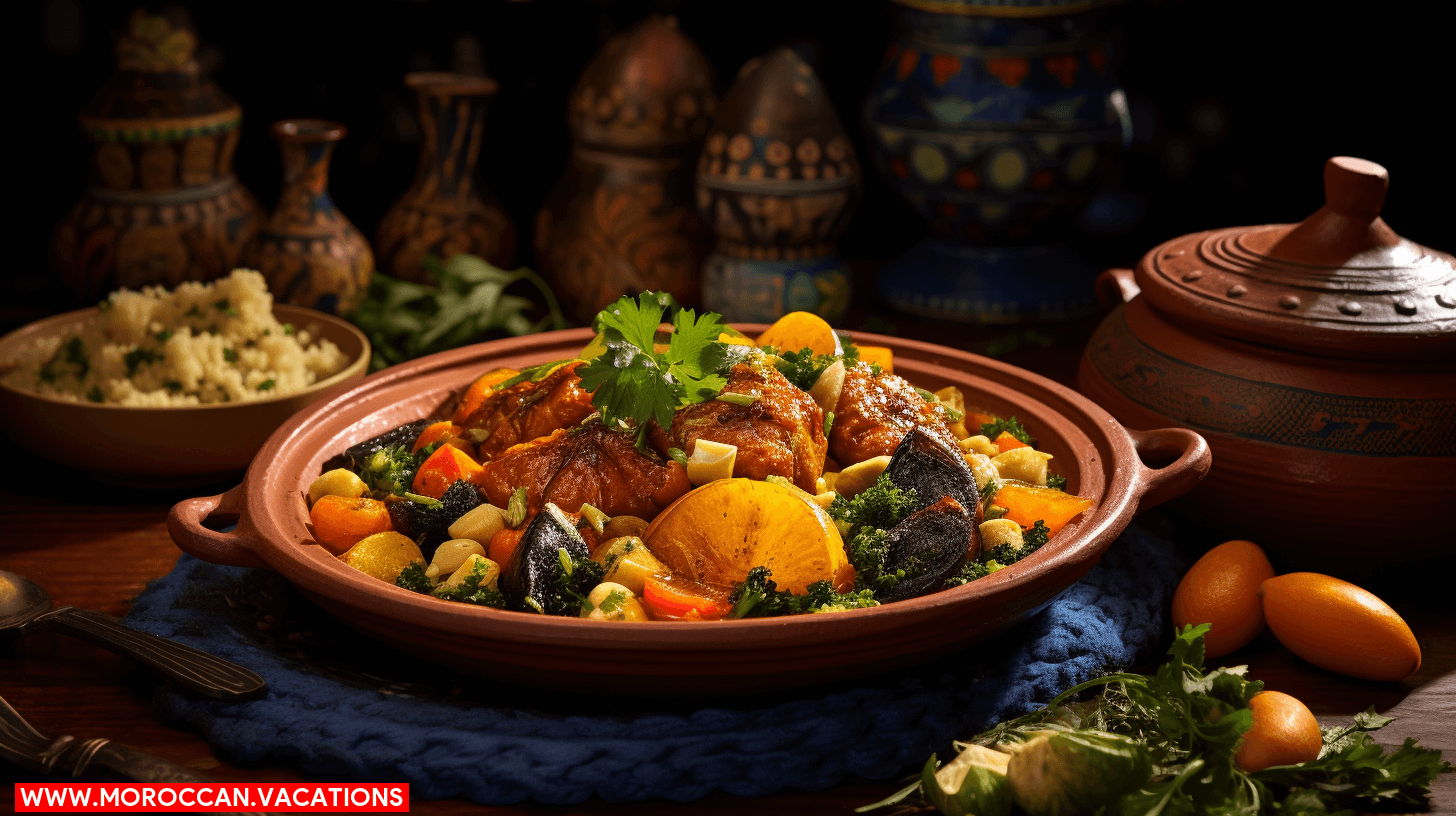

As you immerse yourself in Moroccan celebrations and festivals, you will discover the rich customs and traditions surrounding festive food. Feasting plays a central role in these occasions, with special occasion recipes passed down through generations. Moroccan cuisine is known for its bold flavors and aromatic spices, and these characteristics are especially prominent during festive events.
One of the feasting traditions in Morocco is the preparation of a lavish table spread. This includes a variety of dishes, such as tagines, couscous, and pastilla. The table is adorned with decorative elements, creating a visually appealing display that adds to the festive ambiance. It is common for families to gather around the table, sharing food and stories, and enjoying each other’s company.
To give you a glimpse into the festive food customs and traditions of Morocco, here is a table showcasing some popular dishes served during celebrations:
| Dish | Description |
| Tagine | Slow-cooked stew with meat, vegetables, and aromatic spices |
| Couscous | Steamed semolina served with a variety of vegetables and meat |
| Pastilla | A savory pie filled with flaky layers of pastry and spiced meat |
These dishes are prepared with love and care, often using family recipes that have been passed down for generations. They represent the essence of Moroccan cuisine and are enjoyed during special occasions, creating a sense of togetherness and celebration.
Symbolism of Food in Moroccan Celebrations
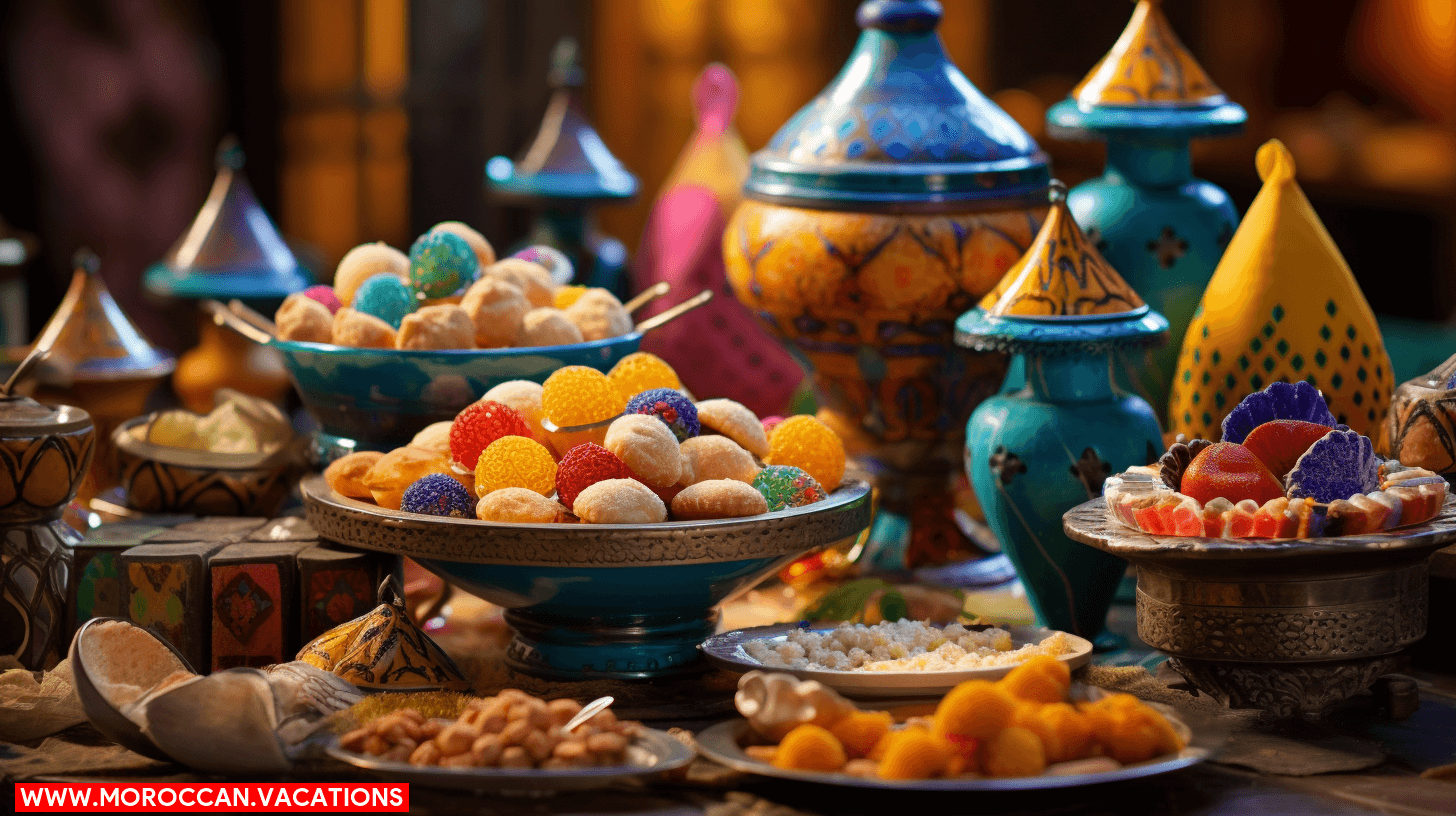

As you continue exploring the festive food customs and traditions of Morocco, it is important to understand the symbolism that food holds in Moroccan celebrations. Food plays a significant role in Moroccan culture, and its symbolism goes beyond just nourishment. It reflects the values, beliefs, and traditions of the Moroccan people, making it an integral part of their celebrations. Here are three ways in which food carries cultural significance in Moroccan celebrations:
- Hospitality and Generosity: Food is seen as a way to express hospitality and generosity in Moroccan celebrations. The abundance of food served symbolizes the host’s desire to welcome and provide for their guests. It is a way of showing appreciation and respect towards others.
- Unity and Togetherness: Sharing food in Moroccan celebrations symbolizes unity and togetherness. The act of communal eating highlights the importance of family and community bonds. It brings people together, fostering a sense of belonging and connection.
- Traditional and Religious Beliefs: Food also holds symbolic value in relation to traditional and religious beliefs in Morocco. Certain ingredients and dishes are associated with specific celebrations and have deep-rooted meanings. For example, during Islamic holidays like Eid al-Fitr, the traditional dish of couscous represents prosperity and abundance.
Understanding the symbolism of food in Moroccan celebrations allows us to appreciate the cultural richness and traditions that accompany these festive occasions. It provides a deeper insight into the values and beliefs of the Moroccan people, making the experience of partaking in these celebrations even more meaningful.
The Importance of Hospitality in Moroccan Culture
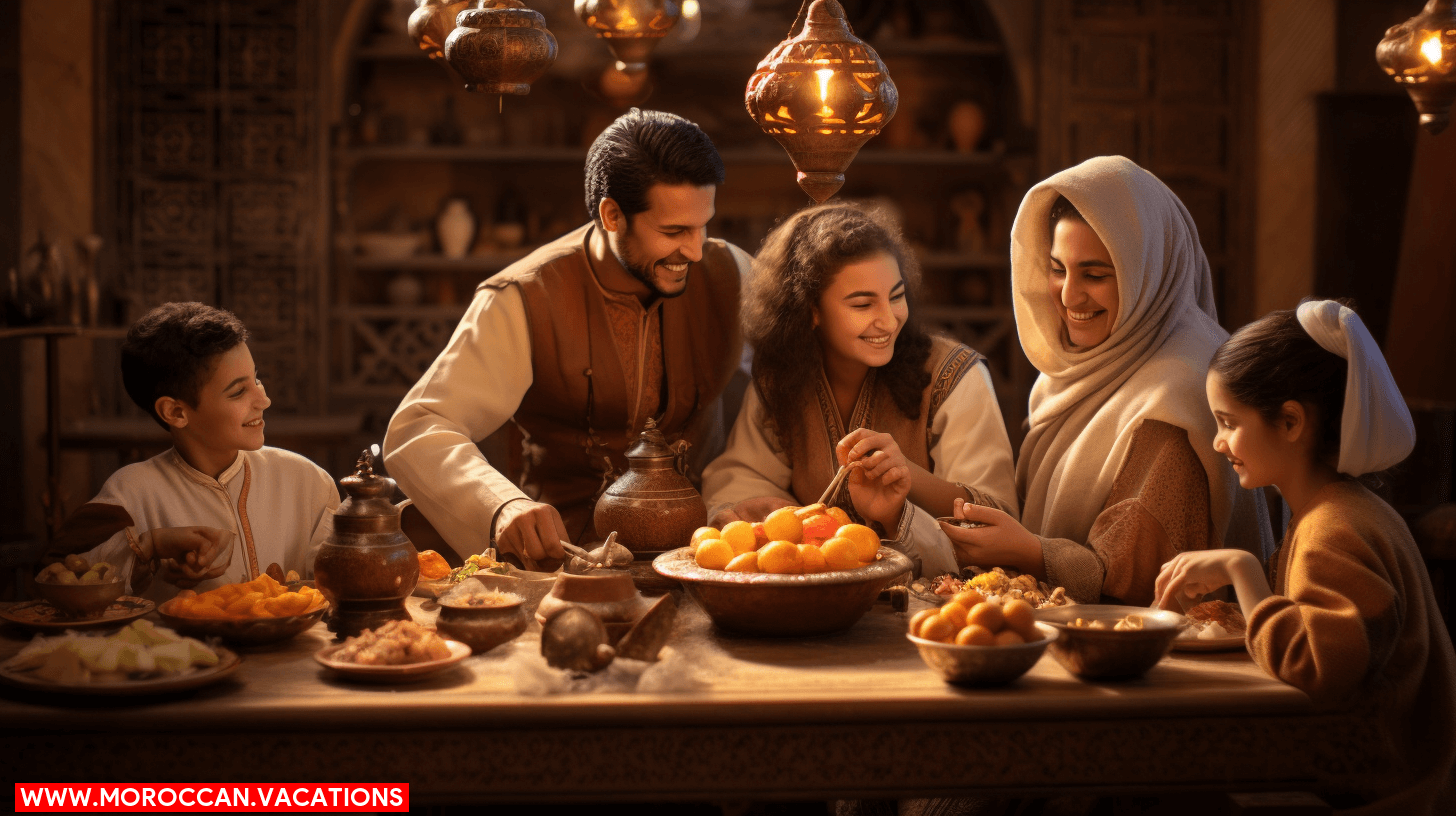

To truly understand Moroccan culture, it is essential to recognize the paramount importance of hospitality. Moroccan hospitality is deeply ingrained in the social fabric and is considered a fundamental value. It goes beyond simply welcoming guests into one’s home; it embodies a larger sense of generosity, warmth, and respect for others.
Culinary traditions play a significant role in Moroccan hospitality. It is customary for Moroccans to serve guests with a variety of delicious and abundant dishes. This reflects not only the rich culinary heritage of the country but also the desire to ensure that guests feel well taken care of and satisfied. Moroccan cuisine is known for its diverse flavors and spices, and sharing a meal together is seen as an opportunity for bonding and building relationships.
Moroccan hospitality extends beyond the home and into the public sphere. From the bustling markets to the local cafes, Moroccans are known for their welcoming nature towards strangers. Whether it is offering a cup of tea or engaging in friendly conversations, the Moroccan people strive to make visitors feel at ease.
The importance of Moroccan hospitality goes beyond mere politeness; it is a reflection of the country’s culture and values. It is a way of showing respect, gratitude, and building connections with others. Through their commitment to hospitality, Moroccans create a sense of community and make visitors feel like they are part of the Moroccan family.
Sharing Meals With Loved Ones
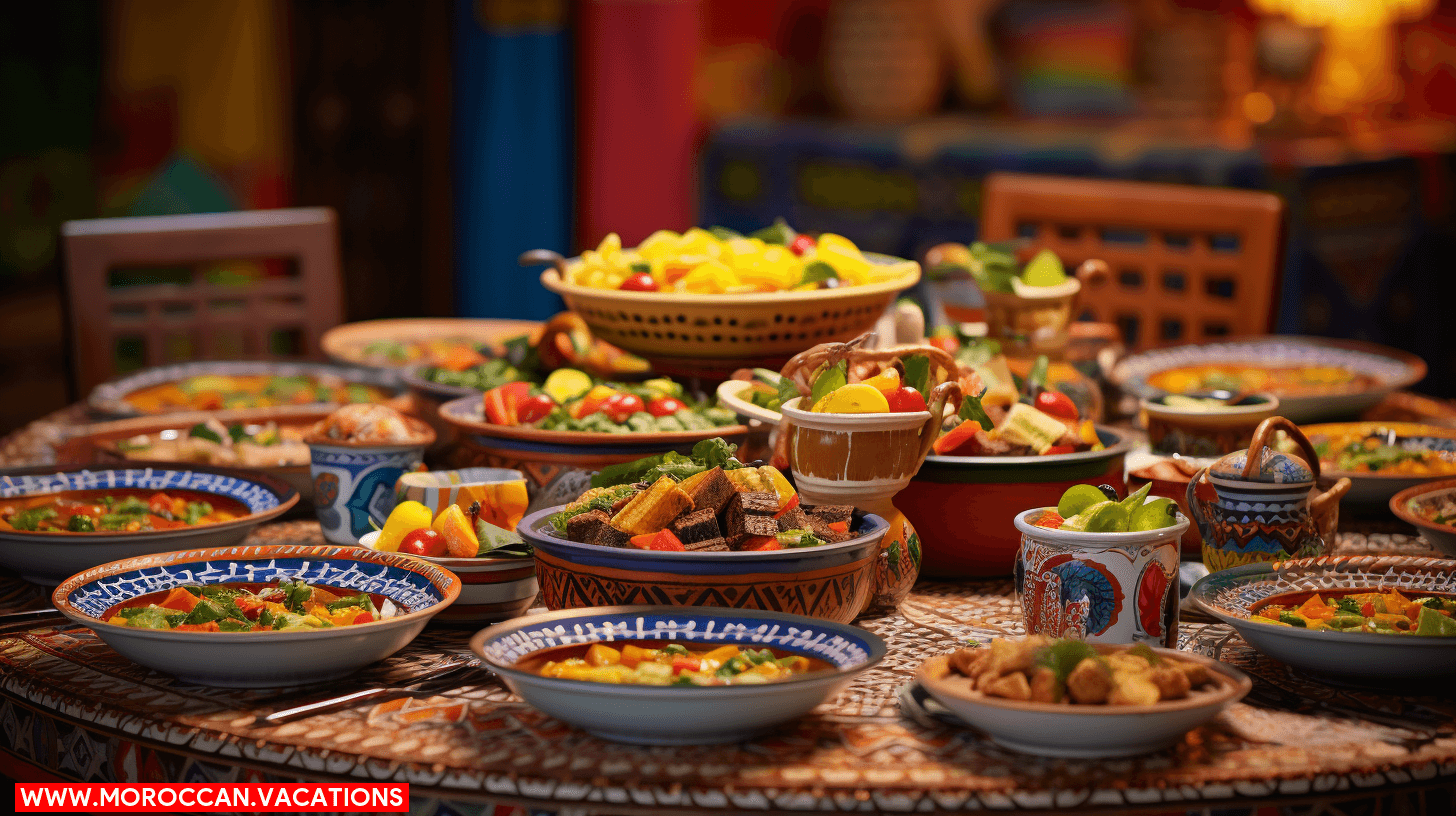

When it comes to Moroccan celebrations and festivals, sharing meals with loved ones becomes an integral part of the festivities. Family gatherings and community feasts play a significant role in strengthening bonds and fostering a sense of unity among the participants. Here are some key aspects to consider:
- Inclusive Atmosphere: During Moroccan celebrations, everyone is welcome to join in the communal meals. It is a time when family members, friends, and even strangers come together to share a delicious feast. This inclusive atmosphere allows people to connect and form new relationships, creating a sense of belonging and togetherness.
- Traditional Recipes: Moroccan celebrations are known for their rich and flavorful traditional cuisine. Generations-old recipes are passed down through families, ensuring that each dish carries a piece of history and tradition. From tagines to couscous, these meals are prepared with love and care, showcasing the unique flavors and spices of Moroccan culture.
- Symbolic Significance: Sharing meals during celebrations holds deep symbolic meaning in Moroccan culture. It represents the importance of unity, love, and togetherness. By sitting down together and breaking bread, families and communities strengthen their bonds and show gratitude for the blessings they have received.
Culinary Influences in Moroccan Festivities
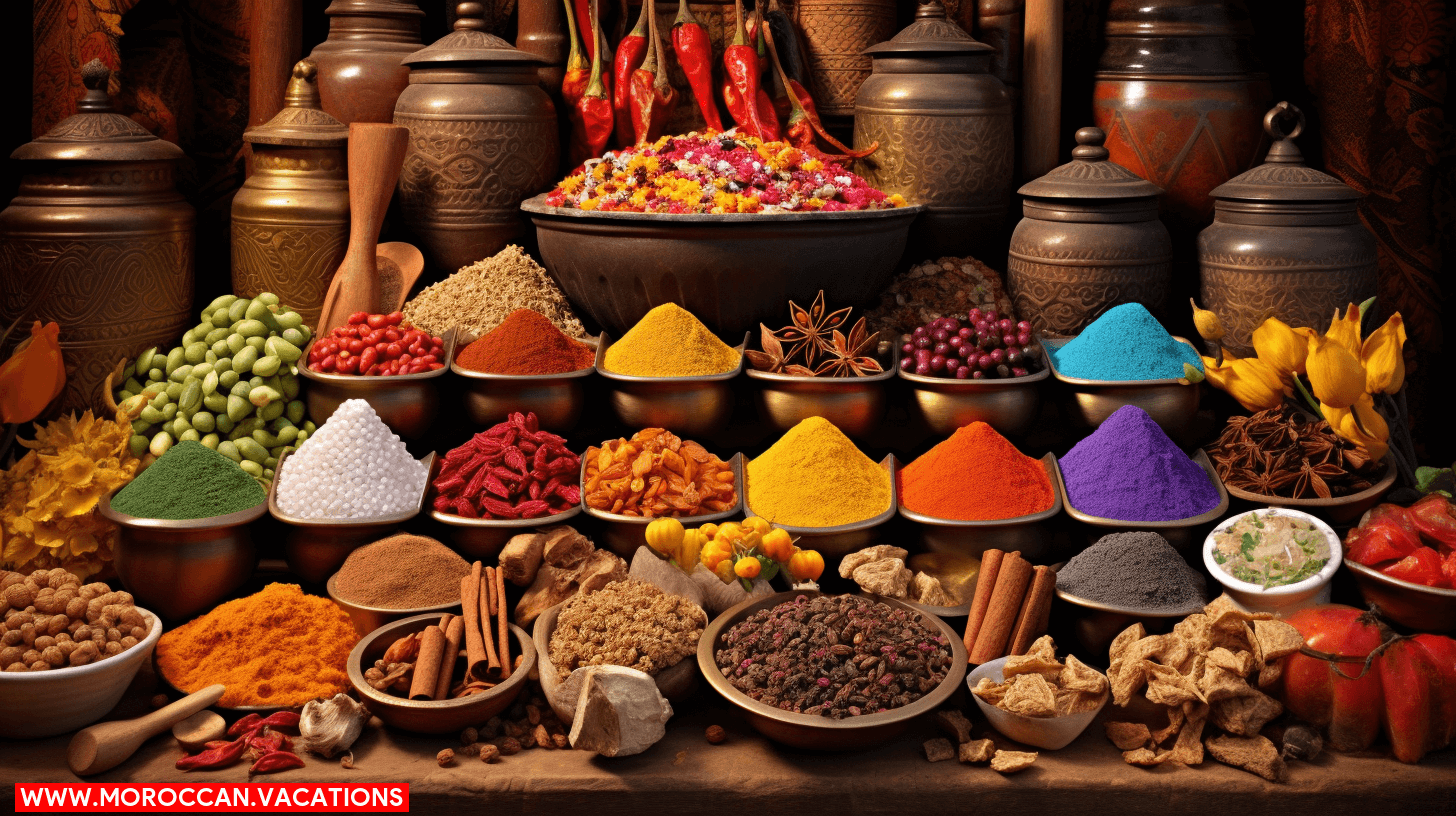

Culinary traditions shape the flavors and dishes enjoyed during Moroccan festivities. Moroccan cuisine is a beautiful blend of diverse influences that have shaped the country’s culinary landscape over the centuries. From the indigenous Berber people to the Arab conquerors and the European colonizers, each group has left its mark on Moroccan food, resulting in a rich tapestry of flavors and techniques.
To better understand the influences in Moroccan cuisine, let’s take a closer look at some festive culinary traditions:
| Tradition | Influences |
| Tagine | Berber, Arab, and Moorish influences |
| Couscous | Berber and Arab influences |
| Pastilla | Arab and Andalusian influences |
Tagine, a slow-cooked stew named after the earthenware pot it is cooked in, showcases the influence of the Berber, Arab, and Moorish cultures. The use of aromatic spices, preserved lemons, and olives adds depth and complexity to this iconic Moroccan dish.
Couscous, often considered Morocco’s national dish, has its roots in Berber and Arab cuisine. This fluffy semolina grain is traditionally steamed and served with a variety of vegetables, meat, and aromatic spices.
Pastilla, a savory and sweet pie, is influenced by Arab and Andalusian culinary traditions. Layers of thin pastry are filled with a fragrant mixture of meat, almonds, and spices, then dusted with powdered sugar and cinnamon.
These festive culinary traditions highlight the intricate blend of flavors and techniques that make Moroccan cuisine so unique. The influences from various cultures have shaped the way Moroccans celebrate their festivities through food, creating a truly extraordinary dining experience.
Introducing Ayoub Karbachi, a brilliant wordsmith and curator of the Moroccan Vacations website. Prepare to immerse yourself in mesmerizing narratives and extraordinary moments, as he unveils the allure of Morocco's captivating destinations like never before.
Related Articles
Vegetarian and Vegan Options in Marrakesh Street Food
Traditional Moroccan Vegetarian Tagines Are you tired of feeling limited when it comes to finding vegetarian and vegan options in Marrakesh's bustling street food scene? Well, we've got some good news for you! Get ready to embark on a culinary adventure filled with...
Street Food Safety Tips for Enjoying Marrakesh's Local Cuisine
Research Local Food Regulations Did you know that Marrakesh is home to a vibrant street food scene, offering a rich variety of local cuisine? To fully enjoy these culinary delights while ensuring your health and safety, it's important to follow a few simple tips. In...
The Influence of Arab Cuisine on Moroccan Culinary Traditions
Historical Background of Arab Influence Imagine yourself transported to the vibrant streets of Morocco, where the tantalizing aroma of spices fills the air and the sizzle of food cooking on open flames entices your senses. In this culinary paradise, the influence of...

